"Tesla, Inc.: Revolutionizing the Automotive and Energy Industries"
"An Overview of Elon Musk's Groundbreaking Company"
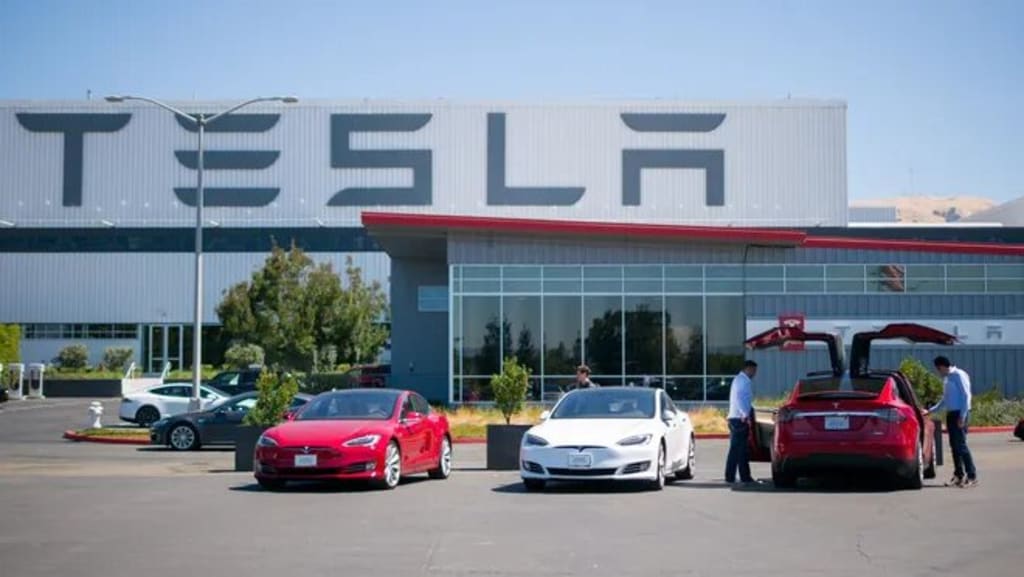
Introduction
Tesla, Inc. was founded in 2003 by Elon Musk and a group of engineers in Silicon Valley with the goal of accelerating the world's transition to sustainable energy. The company's first car, the Tesla Roadster, was introduced in 2008 and was the first highway-capable electric car in serial production for sale in the United States. Since then, Tesla has continued to develop and produce electric vehicles, including the Model S, Model X, and Model 3, which have received numerous awards and accolades for their design, performance, and innovation.
Mission and vision of the company
Tesla's mission is to accelerate the world's transition to sustainable energy. The company's vision is to create a future in which electric vehicles are the primary mode of transportation and renewable energy is the primary source of power for homes and businesses. Tesla is committed to reducing the world's dependence on fossil fuels and mitigating the impacts of climate change through the development and deployment of sustainable energy products and technologies.
Overview of products and services
Tesla offers a range of products and services designed to accelerate the world's transition to sustainable energy. These include electric vehicles, solar panels and energy storage systems, Supercharging network, and renewable energy solutions for homes and businesses. Tesla's electric vehicles are designed to provide a compelling alternative to traditional gasoline-powered vehicles, while the company's energy products and services are intended to make renewable energy accessible and affordable for everyone. Tesla is also committed to innovation and research, constantly striving to improve its products and services and push the boundaries of what is possible in the field of sustainable energy.
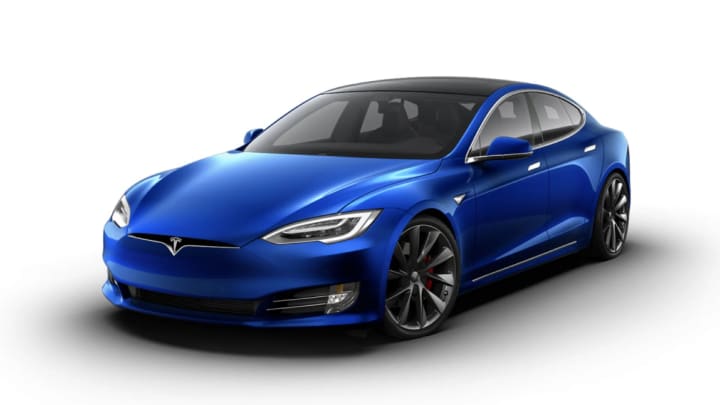
Model S, Model X, Model 3
Tesla's electric vehicle lineup includes the Model S, Model X, and Model 3. The Model S is a luxury electric sedan that offers impressive performance and range, while the Model X is a spacious electric SUV with unique features such as falcon-wing doors. The Model 3 is a more affordable electric car that was designed to appeal to a wider market. All of Tesla's electric vehicles are designed with the same principles of sustainability and innovation, and they have received widespread recognition for their design, performance, and range.
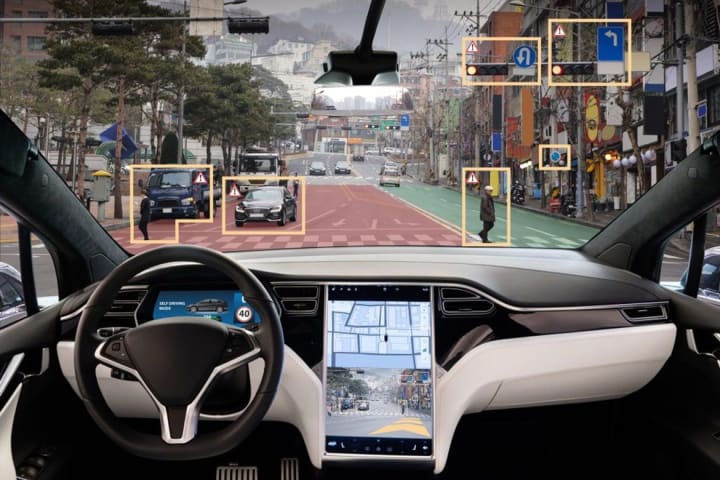
Autopilot technology
Tesla's electric vehicles are equipped with advanced autopilot technology, which allows for hands-free driving on highways and in some other driving scenarios. Autopilot technology uses a combination of cameras, radar, ultrasonic sensors, and GPS to provide a safer and more convenient driving experience. Tesla's autopilot system is regularly updated with new features and improvements, and it is widely considered to be one of the most advanced self-driving systems available in consumer vehicles.
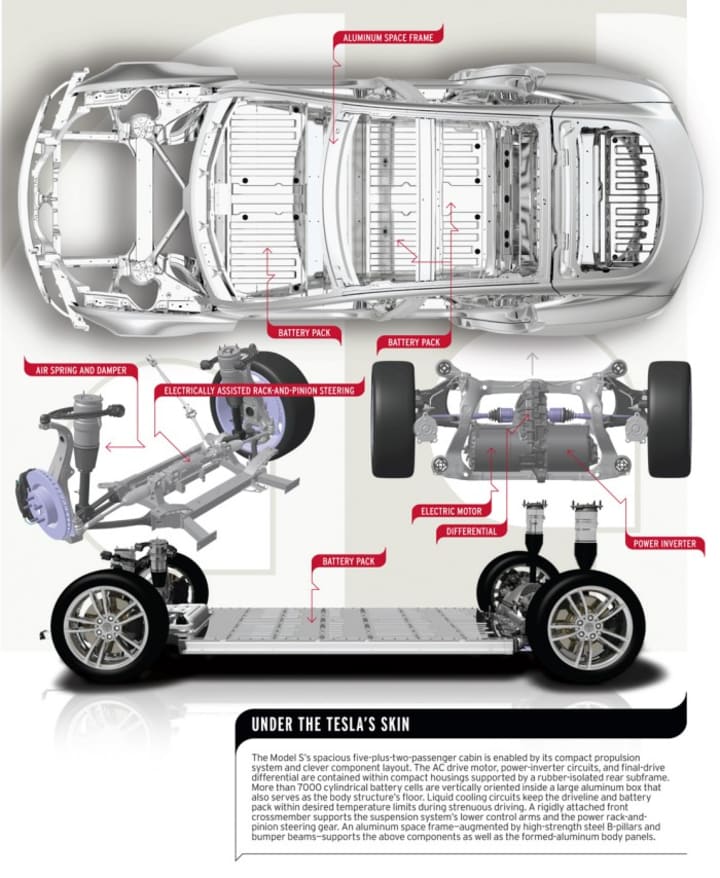
Battery technology and range
Tesla's electric vehicles use advanced battery technology that provides long range and quick charging capabilities. Tesla's batteries are designed to last for many years, and the company offers a warranty for its batteries for a period of 8 years or 100,000 miles (whichever comes first). The range of Tesla's electric vehicles is among the longest of any electric car on the market, with the Model S and Model X capable of driving over 400 miles on a single charge and the Model 3 capable of driving over 300 miles.
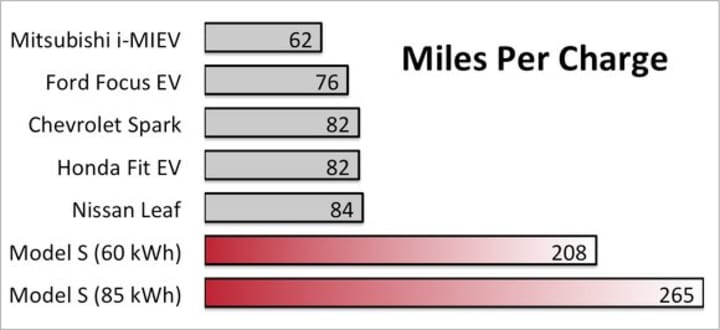
Market impact and competition
Since the launch of its first electric car, the Tesla Roadster, Tesla has had a significant impact on the automotive industry. The company's electric vehicles have set new standards for range, performance, and design, and they have helped to popularize electric cars and bring them into the mainstream. Tesla has faced competition from traditional automakers and other startups, but it has consistently maintained its position as a leader in the electric vehicle market. Tesla's electric vehicles have received widespread recognition and praise from consumers and industry experts, and the company continues to be at the forefront of the transition to sustainable energy in the automotive industry.
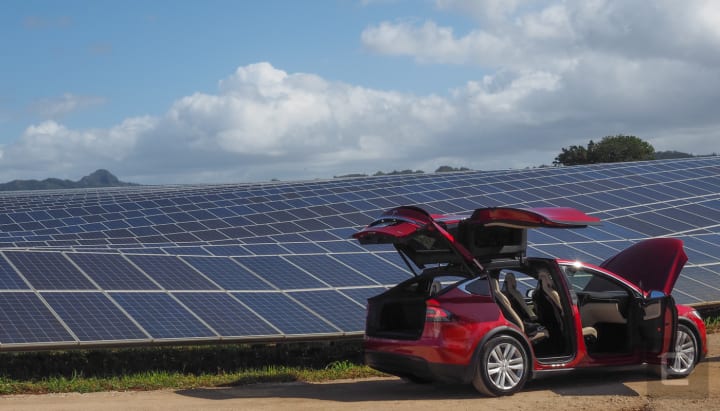
Solar panels and energy storage systems
Tesla offers a range of clean energy products, including solar panels and energy storage systems. The company's solar panels are designed to provide a sustainable source of energy for homes and businesses, and they can be integrated with Tesla's energy storage systems to provide a complete renewable energy solution. Tesla's energy storage systems allow customers to store excess solar energy for use during periods of high demand or when the sun is not shining.
Renewable energy solutions for homes and businesses
Tesla provides renewable energy solutions for homes and businesses, including solar panels, energy storage systems, and energy management software. These solutions are designed to make it easy and affordable for customers to switch to clean energy and reduce their dependence on fossil fuels. Tesla's renewable energy solutions are scalable, allowing customers to start small and expand as their energy needs grow.
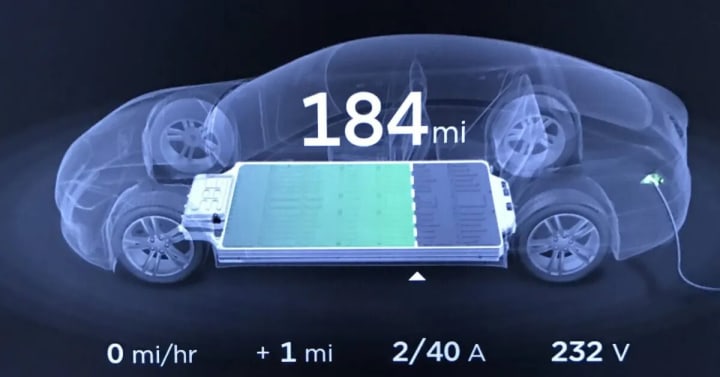
Supercharging network
Tesla operates a network of Supercharging stations that provide fast and convenient charging for Tesla electric vehicles. The Supercharging network is a critical component of Tesla's overall strategy, as it helps to overcome one of the main barriers to widespread adoption of electric vehicles: range anxiety. The Supercharging network is regularly updated with new and improved charging technology, and it is currently one of the largest and most extensive fast-charging networks in the world.
Environmental impact
Tesla's clean energy products and services are designed to have a positive impact on the environment. By reducing dependence on fossil fuels and promoting the use of renewable energy, Tesla is helping to mitigate the impacts of climate change and create a more sustainable future. Tesla's products and services have received widespread recognition for their environmental benefits, and the company is consistently ranked among the top companies in the world for sustainability and environmental responsibility.
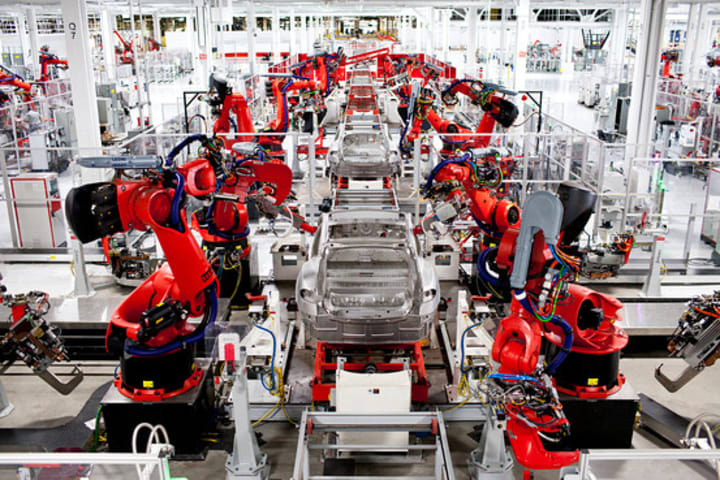
Gigafactory locations
Tesla operates a network of Gigafactories around the world, where it produces its electric vehicles, batteries, and energy storage systems. The company's first Gigafactory was built in Nevada, and since then, Tesla has opened Gigafactories in China, Europe, and other regions. The Gigafactories are designed to be highly automated and efficient, with a focus on reducing waste and maximizing production capacity.
Automation and robotics
Tesla utilizes a high degree of automation and robotics in its manufacturing processes. The company has invested heavily in developing and implementing advanced automation technologies, and its Gigafactories are designed to be highly flexible and capable of quickly adapting to changes in demand. This high degree of automation helps to increase efficiency, reduce waste, and improve the overall quality of Tesla's products.
Supply chain and sustainability
Tesla places a strong emphasis on sustainability and ethical sourcing in its supply chain. The company works closely with its suppliers to ensure that its products are made from sustainable materials and are produced in an environmentally responsible manner. Tesla is committed to reducing its carbon footprint and minimizing its impact on the environment, and it regularly evaluates and updates its supply chain practices to ensure that they are aligned with its sustainability goals.
Expanding product lines
Tesla has a history of innovation and expansion, and it is expected to continue to grow and diversify its product lines in the future. The company has expressed interest in expanding into new markets, including trucking, mobility, and energy, and it is actively exploring new technologies and opportunities for growth. Tesla's focus on innovation and its willingness to take risks have helped it to become a leader in the electric vehicle and clean energy industries, and it is likely to continue to drive growth and innovation in the years to come.
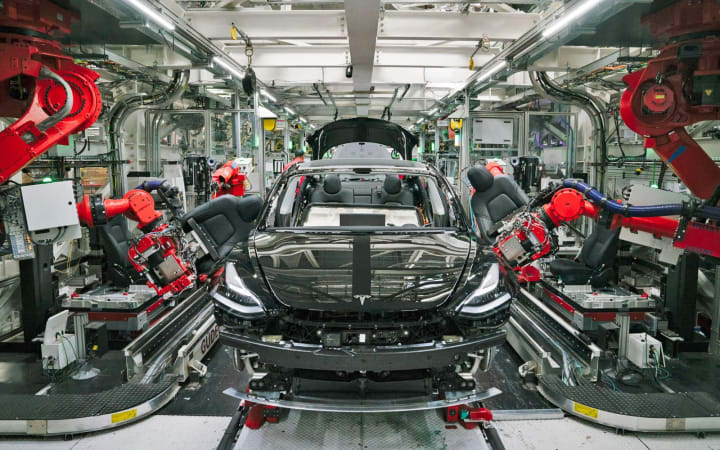
Global growth and expansion
Tesla is focused on global growth and expansion, and it is actively working to establish a presence in new markets around the world. The company has already established successful operations in several key markets, including Europe and Asia, and it is looking to expand into new regions in the coming years. Tesla's commitment to sustainability and its focus on clean energy make it well-positioned to capture growing demand for renewable energy solutions and electric vehicles in markets around the world.
Innovation and research
Tesla is committed to innovation and research, and it invests heavily in developing new technologies and improving existing products. The company's strong focus on R&D has helped it to stay at the forefront of the electric vehicle and clean energy industries, and it is likely to continue to drive innovation in the future. Tesla is known for its willingness to take risks and push boundaries, and it is likely to continue to be a leader in developing new and innovative products that address some of the world's most pressing challenges.
Summary of Tesla's impact
Tesla has had a significant impact on the electric vehicle and clean energy industries since its inception. The company's innovative products, commitment to sustainability, and focus on customer satisfaction have helped to popularize electric vehicles and renewable energy solutions, and it has set a new standard for what is possible in these industries. Tesla's success has inspired other companies to pursue similar goals and has helped to drive growth and innovation in the electric vehicle and clean energy markets.
Challenges and opportunities
While Tesla has made significant progress in advancing the electric vehicle and clean energy industries, the company faces a number of challenges and opportunities as it looks to the future. Competition in the electric vehicle market is increasing, and Tesla must continue to innovate and differentiate its products in order to maintain its competitive edge. Additionally, the company must navigate shifting regulatory and economic environments in different regions around the world. Despite these challenges, Tesla has a strong foundation and a clear vision for the future, and it is well-positioned to capitalize on the growth opportunities that lie ahead.
Final thoughts on the company's future
Tesla has already had a transformative impact on the electric vehicle and clean energy industries, and it has the potential to play an even greater role in shaping the future of these markets. The company's focus on innovation, sustainability, and customer satisfaction make it well-positioned to capture growing demand for electric vehicles and clean energy solutions around the world. Whether Tesla continues to be a leader in these industries will depend on its ability to navigate the challenges and opportunities that lie ahead, but the company's track record suggests that it is well-equipped to continue to drive growth and innovation in the years to come.
About the Creator
Enjoyed the story? Support the Creator.
Subscribe for free to receive all their stories in your feed. You could also pledge your support or give them a one-off tip, letting them know you appreciate their work.

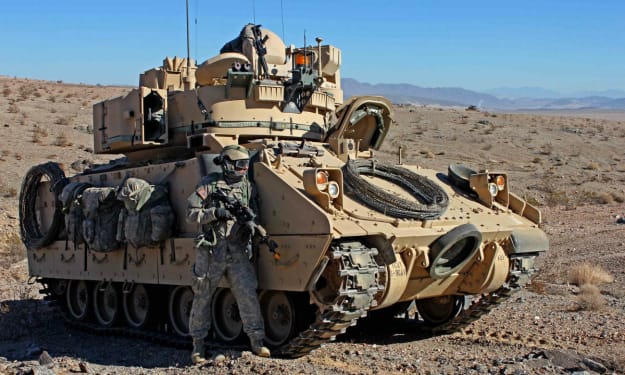



Comments
There are no comments for this story
Be the first to respond and start the conversation.